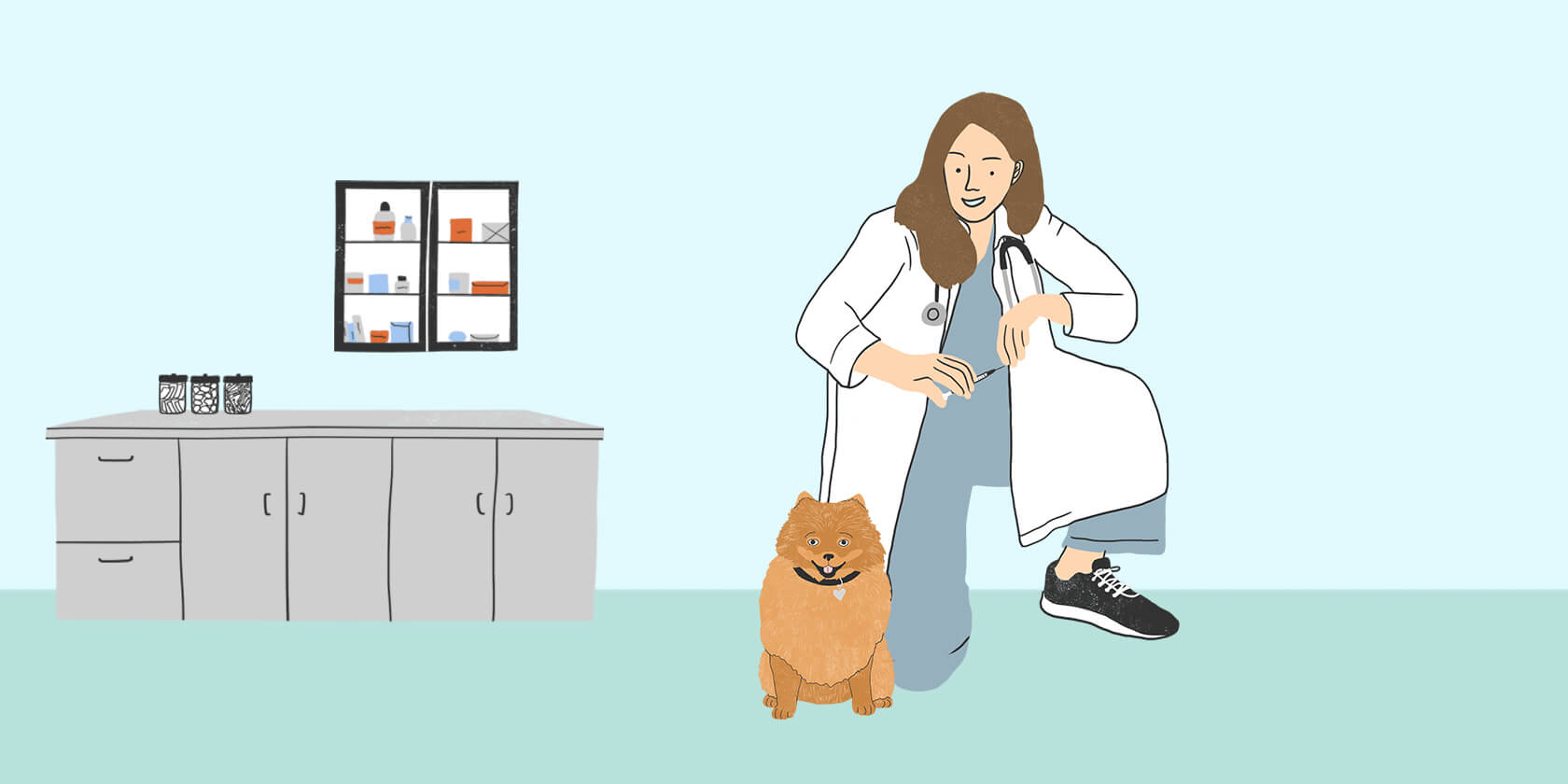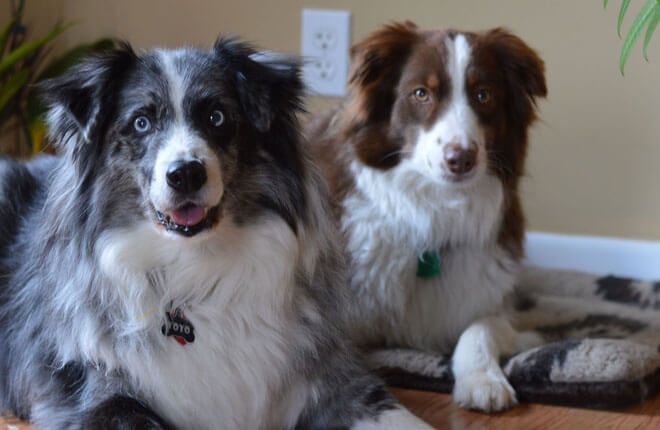The lack of updated vaccines can prevent you from traveling with your dog (or boarding them when they can't come along), so it's important to stay up-to-date on your dog's vaccines. Regardless of plans to stay in or venture out, preventative healthcare saves you money, time, and — most importantly — keeps everyone healthy.
Maintaining Your Dog's Vaccines
Canine diseases like Bordetella, influenza, Lyme, and leptospirosis are always out in full force, with no decrease in likelihood. In fact, hiking and outdoor walks in the park or visiting the dog park all increase your dog's exposure.
Bringing your dog to the vet should also be part of your dog's routine maintenance because veterinary visits are for more than just vaccinations. They allow the veterinarian to thoroughly examine your dog, identify potential problems before they progress, and keep you and your whole family safe by ruling out parasites or other contagious health conditions.

Why Is It Important to Maintain Your Dog's Vaccines?
For the health of both pets and people, one of the most important reasons to maintain your dog's vaccines is rabies protection. Rabies can be transmitted to humans and is nearly 100% fatal to both people and pets, so it's essential we do everything we can to minimize disease exposure by vaccinating your pet.
Another reason pet owners should maintain their dog's vaccinations is to avoid having to restart the vaccine series in the future, costing more time and money in the long run. Vaccines need to be re-administered on a set schedule (in many cases annually, and with some vaccines, every three years), in order to keep a sufficient level of immunity[1]. If a pet owner chooses not to administer vaccines this year, their dogs may have to “restart” the series and require a two-dose series next year to reach effective antibody levels – negating any financial savings this year and causing an extra veterinary visit and vaccination for your dog next year.
Common Diseases and How They Spread
Here's a quick look at vaccines your veterinarian may recommend and how their associated diseases can spread.
| Disease | What It Causes | How It’s Spread |
| Canine Distemper Virus | Fever, lung disease, seizures, can be fatal | Through the air: Aerosol and droplets |
| Adenovirus Type 1 (Adenovirus-1) | Uveitis, liver and kidney damage | Through the air: Aerosol, droplets Contact with fluid |
| Adenovirus Type 2 (Adenovirus-2) | Respiratory disease, pneumonia, can be fatal | Through the air: Aerosol, droplets Contact with fluid |
| Canine Parainfluenza | Cough, runny nose, lung infection | Through the air: Aerosol, droplets |
| Canine Parvovirus | Vomiting, bloody diarrhea, bone marrow suppression, can be fatal | Via nose or mouth when in contact with contaminated feces |
| Canine Coronavirus Disease (CCoV) | Diarrhea | Via nose or mouth when in contact with contaminated feces |
| Leptospirosis | Fever, vomiting, liver and kidney damage | Contact with infected tissue or urine, or indirectly through contaminated water |
| Bordetella (a.k.a. Kennel Cough) | Cough, runny nose, difficulty breathing, lung infection | Through the air: Aerosol, droplets Contact with contaminated surfaces |
| Canine Influenza | Cough, runny nose, difficulty breathing, lung infection | Through the air: Aerosol, droplets Contact with contaminated surfaces |
| Lyme Disease | Joint pain and inflammation, fatal kidney damage | Bites from an infected tick |
| Rabies | Nervous disease progressing to death | Bite from infected animal or contact with infected saliva |
You can see that these diseases are all spread in a few different ways: aerosolized, nasal/oral contact, contaminated water, or by a bite from an infected animal or insect.
Aerosolized transmission, in particular, is a concern even if your dog is six feet away from other dogs. Aerosolized diseases spread when bacteria and viruses travel on microscopic respiratory droplets or dust particles that enter the air when an infected dog sneezes, coughs, or pants heavily.
It's easy to see why dogs, simply walking and exercising outside, can quickly spread disease. Our dogs are still at risk, even when they aren't traveling or boarding. Vaccinating your dog is the best method to keep them healthy.
ZPC-00934R1
- 2022 AAHA Canine Vaccination Guidelines, https://www.aaha.org/aaha-guidelines/vaccination-canine-configuration/vaccination-canine/. Accessed April 24, 2024.



